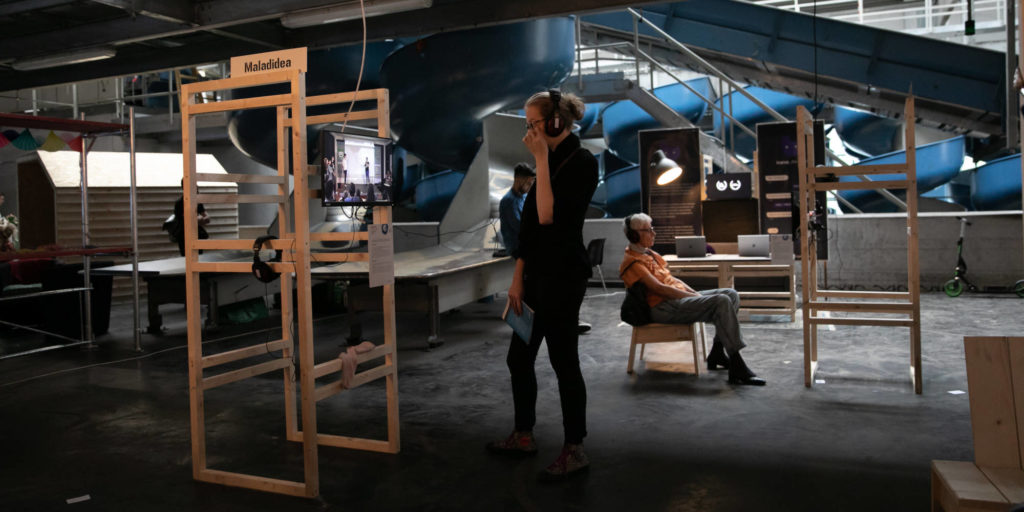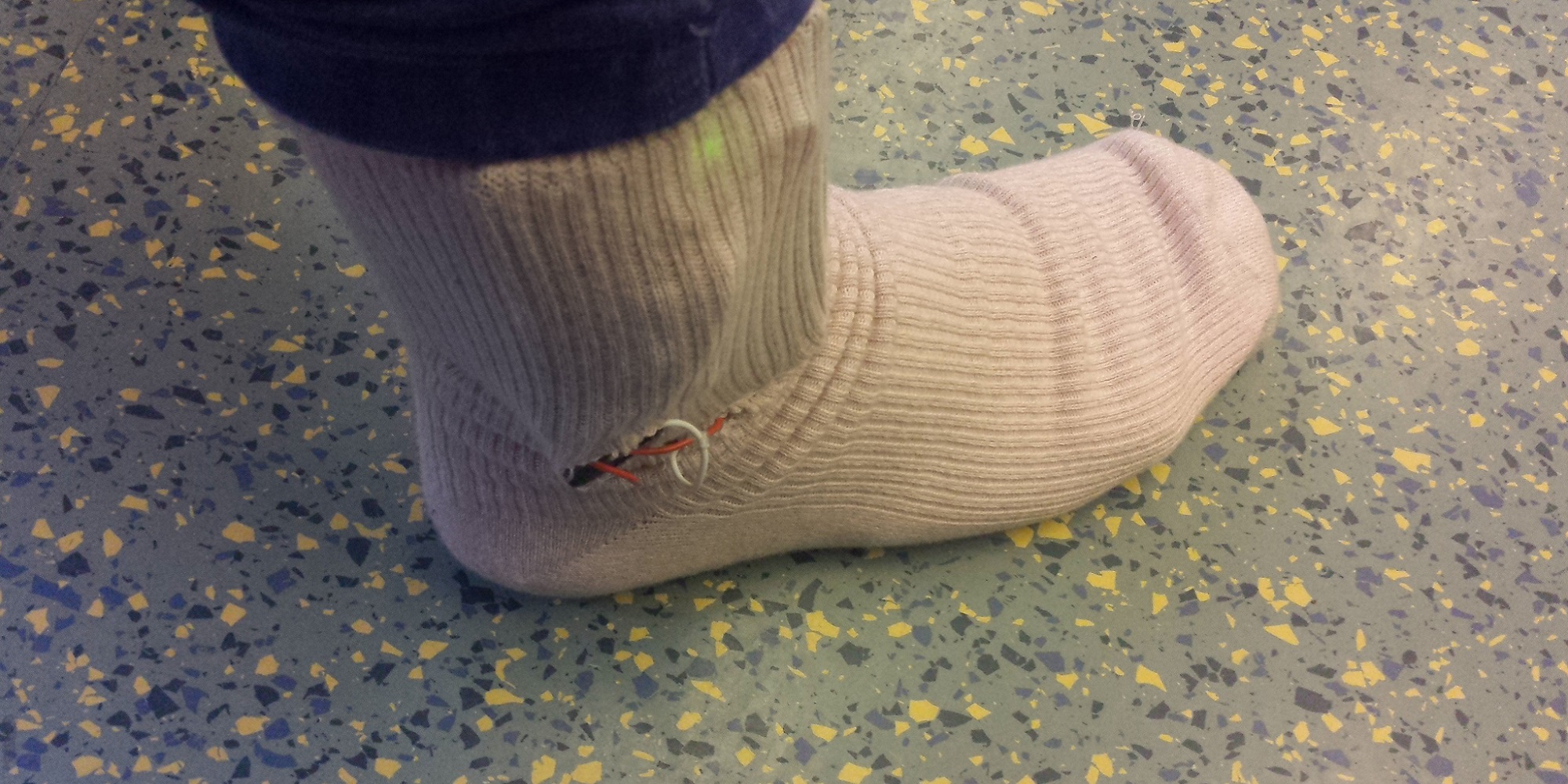Clemens Grossberger (AT), Isabella Hundstorfer (AT), Markus Petzke (AT), Dominik Schicketanz (AT), Tobias Teichmann (AT), Thomas Übellacker (AT)
u19 winner: Honorary Mention
Dementia can be dangerous: for the person suffering from it and for their relatives and caregivers. A smart sock can help! – Maladidea, an intelligent sock, provides help to dementia sufferers and their caregivers.
Many people whose circle of acquaintances has ever included someone in need of nursing care are surely familiar with this situation: A person with dementia gets out of bed in the middle of the night and thereby endangers himself or herself. This constitutes the problem the Maladidea team sought to tackle. Taking advantage of the possibilities offered by intelligent 21st-century textiles, they developed a sock that can track steps of someone suffering from dementia and alert the individual’s caregiver. This is a way to prevent incapacitated people from endangering themselves.

The sock is equipped with two pressure sensors that register steps and send a signal to the sock’s built-in mini-computer, which, in turn, communicates with a central server that is responsible for saving the tracked data to memory and communicating it. The caregiver then immediately receives a Push notification and an audio signal on their own smartphone, an audio signal on an extra device – for example, to awaken the caregiver – and a live message on a Web platform.
The concept would be of interest to hospitals, nursing homes, and individuals receiving home care. The intelligent socks are machine washable and reasonably priced.
Clemens Grossberge, Isabella Hundstorfer, Markus Petzke, Dominik Schicketanz, Tobias Teichmann and Thomas Übellacker are six ambitious young developers possessing diverse technical skills. They first met at Jugend Hackt, a hackathon staged annually in Linz, where they also developed an initial prototype.


